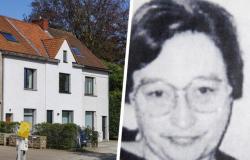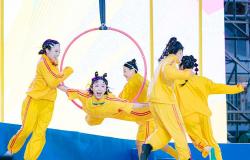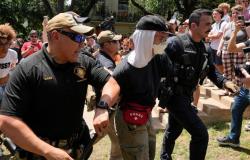By Esther Y. Kim
“No matter how bleak and constrained the situation,” she said, “some forms of improvisation and coping take place. No matter what happens, people go on telling stories about it and bequeath them to the future.” She added, “The past reminds us that change can occur.”
—New York Times obituary for historian Natalie Zemon Davis (https://www.nytimes.com/2023/10/23/books/natalie-zemon-davis-dead.html)
I first came and quarantined on this island in 2022. My first port of call being Taipei, I found it different from my tourist days. Too harried, too grim, too rainy. Where had all the color gone? Once I traveled south, I felt the heavens open up, the blue sky peeking out behind the gray clouds, and finally felt sunlight.
But now closing out my Taipei apartment after one year and change, I know I’ll miss it. I always feel a preemptive nostalgia at the end of things – a semester-long language course, a new job, a lease – and packing for yet another move.
So, goodbye to my tiny studio flat at the southernmost edge of Taipei City. This building holds all sorts of funny memories.
To first enter the lobby, I scan my face, the machine identifies me as “Foreigner #1,” flashing the unflattering photo taken by the grouchy building supervisor and unlocking the door. (My friend is saved into the system as “Foreigner #2.”)
From my eighth-floor studio, I overlook a vast, angular spread of tin-roofed homes. About 50 percent of Taipei’s buildings are more than 30 years old. To my left, the campus’ palm trees sway, cheery yellow Youbikes line the sidewalk, and a sliver of Roosevelt Road appears. It’s the only major avenue in Taipei named after an American figure, President FDR A mysterious megachurch towers over it all.
From this lower height, I felt my first earthquake tremors that first autumn as I used the laundry machine (good riddance). I believed then that my machine’s ferocious spin cycle had sent the building shaking. The blinds swayed, the hanging pans knocked about, and I knew that something was up.
The next morning in Mandarin class, the Filipina classmate laughed at how new we were to earthquakes. The worst ones are when the building moves up and down, she said. Side-to-side wasn’t bad. From then on, I felt phantom quakes whenever I did laundry and nervously walked around my apartment.
I often sat by the window at this desk, studying flash-cards to memorize words that would give me grapple holds onto basic conversations in Taiwan. Only nine months at the Mandarin Training Center, and my progress is staggering: I have functional Mandarin, thanks also to the language scholarship from the Ministry of Education. Korean sounds closer to Cantonese or Taiwanese, they say. I can form simple sentences: ‘Cab driver, take me to the high-speed rail station.’ ‘Yes, I have membership.’
A membership I no longer intend to use … One thing’s for certain: I won’t miss your weather, Taipei. Perpetually damp and humid, a capital moved to a valley, is one of the Japanese administration’s worse decisions.
I have grown into a meeker and quieter version of myself, or put another way, more conscientious of how people take up space and volume in public. While New York demands the loudest, toughest, boldest version of ourselves, people here seem to avoid eye contact, opting to bow their heads over their screens instead, and always shift their bodies to accommodate.
It took moving away from home to see parts of myself, my Americanness. Accustomed to Western-style education, I raged about the Mandarin teachers who openly mocked old and young students for simply trying. Still, the classmates from Guatemala, Honduras, Indonesia, Vietnam, Myanmar and Japan made all the stumbling together great fun.
Goodbye to Taipei where I biked everywhere and felt the thrill of speeding northward with people who looked like relatives. The elderly man gingerly steering one-handed through the rain holding an umbrella in his other hand, and the student on his bike slowly guiding a wheeled suitcase across a large intersection under the highway — they inspired.
Goodbye to the quiet side streets parallel to Roosevelt Road, the print shop, the connoisseur’s coffee shop, the homey rice ball place, and the only decent Korean place in the whole of the city.
Goodbye to the city’s noises. Each morning, thousands of motorbikes roared me awake when they flooded onto this side street and fanned out onto Roosevelt Road below. Walking along the gas-powered motorbike-laden avenue was like walking next to one hundred Mack trucks roaring at seventy miles an hour. Come evening, the garbage truck plays its “Fur Elise” tune, signaling collection time. An elderly woman chants prayers at the top of her lungs to ward off neighborhood ghosts.
This tiny place became a home. It wasn’t perfect. I accidentally flooded this studio a few times with boiling hot water from the laundry machine (good riddance). During the summer, brazen cockroaches liked to skitter across my alley way or waited for me on the lobby mat. That sent me into frenzied, defensive cleaning sprees. I’d spent so much of my American life insisting on centering Asia, rather than making it the subject of some traumatic past or ancient spiritual motherland. Well, you want Asia? I got it here in all its unvarnished, bittersweet and inconvenient glory.
Esther Kim ([email protected]) is a freelance writer living in Taiwan. She worked at the Asian American Writers’ Workshop in New York City and earned her Masters in Korean literature at SOAS, London. She writes about culture and the Koreas.






